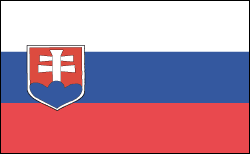Slovakia News & Current Events


Slovakia Key Player in European Bailout Fund
In October 2011, Slovakia found itself in the position of determining the fate of a euro-zone bailout fund. Parliament, responding to outrage among citizens who did not think it was their responsibility to help finance the rescue of much richer and larger countries, such as Greece and Portugal, voted against supporting an expansion of the European Financial Stability Facility, which administers the bailout fund. In voting down the legislation, Parliament also passed a no confidence in the government of Prime Minister Radicova. The legislation passed two days later, however, when an opposition party joined with the government and voted in support of the measure. In exchange for their support, the government agreed to hold early elections in March 2012. In the election, the Smer-Social Democracy Party, headed by Robert Fico, who served as prime minister from 2006 to 2009, won 83 seats in the 150-seat parliament. Fico returned to power, and for the first time since Slovakia gained independence in 1993, a party will govern without having to form a coalition.
2014 Brings New President
Slovakia held presidential elections on March 15, 2014. Ivan Gašparovič, president from 2004 to 2014 and the first to be re-elected to a second term, could not run for a third term because Slovakia's constitution only allows two.
No candidate had a clear majority after the first round of the 2014 presidential elections. However, Prime Minister Robert Fico and Independent candidate Andrej Kiska had enough votes for a runoff which was held on March 29. Kiska won with 59.38% of the popular vote to Fico's 40.61%. An entrepreneur and philanthropist, Kiska had no political experience prior to the election. Kiska was sworn in on June 15, 2014.
See also Encyclopedia: Slovakia .
U.S. State Dept. Country Notes: Slovakia
Statistical Office of the Slovak Republic www.statistics.sk/webdata/english/index2_a.htm .







